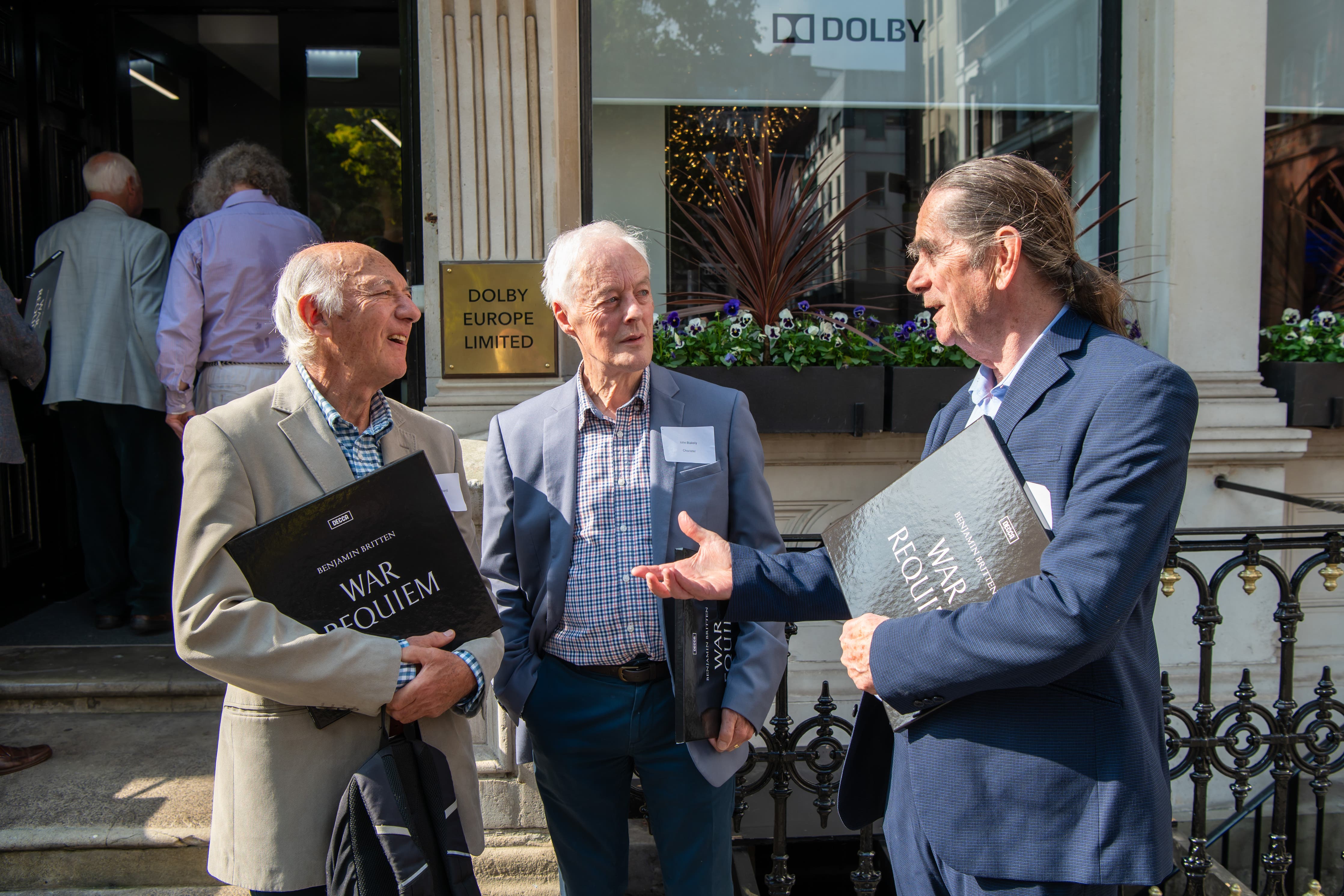London boys choir conducted by Benjamin Britten reunited after 61 years
Laurence Bard, one of the original choristers from 1963, was part of the reunion at the Dolby Theatre in Soho.

A group of London-based choir boys that were conducted by British composer Benjamin Britten has reunited 61 years after they performed together.
A student choir from Highgate Boys School in London performed a recording of War Requiem by Britten at the Kingsway Hall in Holborn in 1963, which was re-released by Decca Records last year prompting the company to place an advert in London newspaper the Ham & High to track down the surviving choir members and bring them together 60 years on from the session.
Around 17 members of the choir were reunited on Thursday at the Dolby Theatre in Soho, London, 61 years on where they re-listened to Britten’s recording of the album.
Laurence Bard, 74, one of the choristers from more than 60 years ago, was part of the reunion and told the PA news agency it was “delightful” to reunite with the choir members.
“It was a very nice thing for Decca to organise. It was delightful. It was a very nice environment and nice to reconnect with people and with the music,” Mr Bard, who lives in Hampstead, London, said.
The former chorister said some of the day was spent listening to a “delightful extract from Britten”.
“Actually, it was a recording given to Britten on his 50th birthday by Decca of him actually instructing the orchestra,” he added.
“It was a recording of the process of recording and the extract they played for us really was Britten telling the choir what to do and what not to do, which was quite amusing. Sort of a bit dictatorial, but then that’s his privilege.
“I can’t remember it being difficult and yet when I hear the recording of the recording I think, ‘gosh, how did we manage to follow Britten’s instructions?'”
Mr Bard, who is retired but was previously an accountant, remembered much of the songs he sang in 1963 despite not listening to the War Requiem album since.
“It’s funny one’s musical memory. I probably haven’t listened to the War Requiem a huge number of times since then, but I can remember how all our tunes go very, very well,” he explained.
“The bits that were played, they were totally familiar to me.
“It is lovely to be able to just sing along. Of course, I couldn’t do the treble part.”
While he cannot remember much of Kingsway Hall, where the album was recorded, he does recall there being “a lot of microphones and cables”.
He added: “I would remember Benjamin Britten because I know his face very well.”
Mr Bard said he was aware the recording was “a prestige production, and Decca were a prestige outfit”, but joked his knowledge of classical music perhaps was not as extensive as his interest in The Beatles.
“At age 13, I was otherwise listening to The Beatles. Love Me Do was in 1962 and Beatlemania was certainly very rife in 1963,” he said.
At the Grammys in 1964, the War Requiem, based on Wilfred Owen’s poetry, won best classical composition by a contemporary composer, best classical performance, choral, not opera, and classical album of the year.
One choir member who was named last year was composer John Rutter who visited Decca’s London offices to hear the remastered album along with surviving members of the original recording team.
Rutter, known for his compositions Requiem, Magnificat, Mass Of The Children, The Gift Of Life, and Visions, said previously about the remastered album: “That’s now been brought out absolutely to the full in this new remastering… It’s a marvellous achievement.”
Mr Bard said he is grateful to Decca for “thinking of us and doing it (hosting a reunion)” and extended his gratitude former music teacher Edward Chapman at Highgate Boys School.
“I’m also grateful to Highgate school, which I think actually is also a great achievement that we had a very dominant music teacher called Edward Chapman.
“I think we must give credit to Mr Chapman who was this rather pernickety and slightly odd character, but he built up a tremendous music department.”
Bookmark popover
Removed from bookmarks